#master meta
Explore tagged Tumblr posts
Text
Why does no one ask, Master Who?: (#3 - Oh No, He’s Crispy!)
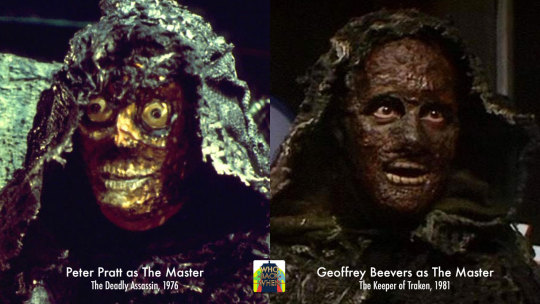
Why does no one ask, Master Who?: A Character Study Series Masterlist
Our next topic to cover in the subject of the Master is his Anakin Skywalker---er, I mean, sudden change in appearance and re-appearance when he surprises us all in the Fourth Doctor’s era. I think this is where his now signature long running gag for ‘coming back from the dead’ without any explanation truly began.
So, because of the tragedy that happened to Roger Delgado, the Master as a character was kept out of stories for quite awhile until the 4th Doctor’s era in 1976′s episode, “The Deadly Assassin.” An episode not only remarkable for bringing back the Master in a MUCH darker state, nearing the end of his regeneration cycle, but the fact this episode began a lot of the mythos of the Time Lords and Gallifrey as we know it. Played by two different actors for two different episodes years apart, the fandom has dubbed the Peter Pratt and Geoffrey Beevers Master’s as the Crispy Master or Decayed Master, due to his decaying form looking like he was fighting with a Jedi for control of the high ground and lost (Still too soon? Okay.)

In ‘The Deadly Assassin,’ the Master’s disappearance is explained to us when he comes up with a clever plot, sending the Doctor back home to Gallifrey in order to uncover a mystery into the future premotionions of the Lord President’s death (and of course he’s behind it.) This Master is FAR more dark than his previous self, hell-bent on only his survival, even if it means taking the rest of Gallifrey with him to achieve it. Only his hate and need for revenge keeps him going. Although it may seem the Master has finally lost, this is only when we start to realize how great of a survivor he can be when it comes to death.
Making a return in ‘The Keeper of Traken,’ he’s still focused on attaining a body that can handle the presence of a Time Lord. Although he isn’t able to obtain the Doctor’s, using his cunning, the Master ends up stealing the body of Tremas of Traken, finding a way to extend his life a little longer.
Important Character Traits for Crispy!Master:
High sense of Self-Preservation. He doesn’t care what it takes to stay alive. This is the first time we see it with the Master, even if he’s going completely against the Doctor to do so.
Known for being the most ruthless of the Master’s incarnations (and that’s saying something.)
His physical state of being rotten and decayed can be used as a metaphor for how evil he is as an individual. As Geoffrey Beevers remarked; this is what the Master is like without his smooth looks and charm: as he put it, "the essence of the creature.”
However, in Big Finish, thanks to Beevers himself, and the writers, Crispy gets more of a development. Despite being just ruthless because of his current situation, ‘being faced with his own mortality also gives him plenty of poetic and calm moments.’
The Many Explanations for his Crispy State:
Geoffrey Beevers remarked that this is what the Master is like without his smooth looks and charm: as he put it, "the essence of the creature". This seems to be a running theme with this Master. The first Crispy Master is the ugliest and cruellest of all, while the second Crispy seems to have "healed" a little and is a step back towards Delgado behaviour (how much of the "healed" appearance is intentional and how much of it is due to the limitations of Beevers' makeup compared to Pratt's mask is unknown).
There are also many more explanations of how the Master became decayed on the TARDIS Wiki.
#the master#crsipy!master#beevers!Master#Pratt!master#Decayed!master#master who series#classic who#geoffrey beevers#peter pratt#doctor who#master meta#doctor who meta
11 notes
·
View notes
Text
One thing I did appreciate is that The Acolyte did not hold back on that Osha went full dark side, that Sol's kyber crystal was crushed by her anger and hate to the point that it bled into a red saber. She straight up murdered someone who was not fighting back. She killed him because she was hurt and angry, not because he was a threat. Osha's feelings of betrayal and rage were valid, her actions were not. She murdered an unarmed man who was not fighting back, who had no intention of fighting back, who literally forgave her as she choked the life out of him, and nothing of her actions were justified. She wasn't even regretful about it. The dark side can be humanized to a degree, it always has been in Star Wars, that's nothing new. Anakin's everything ever, Maul's pain and desperation for a connection through an apprentice, Dooku's clinging to his care for people like Yaddle or Asajj, the dark side has never been about detached or unsympathetic anger. It's always come from a very human place, that's why the Jedi constantly caution that no one is beyond it. But Osha embraced it here, she stepped over the line and murdered a defenseless man because of her rage, not because it was in any way justified as a killing, and the kyber crystal screamed and bled because of it. You don't get a red saber by being justified, you get it by crossing the line into an act of evil. And props to The Acolyte for not shying away from that, as human as Osha is and will continue to be, her actions were over the line of evil.
3K notes
·
View notes
Text
Alright, I'll say it: Jack Harkness and the Doctor's relationship is possibly the most fleshed out/complicated dynamic in Doctor Who and that is INCLUDING the master/doctor relationship. Seriously, think about it:
the fact that when they meet jack is presented as sleazy con man and the doctor makes him brave- makes him good
but that they are both willing to die for rose as long as she is safe
and then she comes back and dooms them both to live (even though jack has already died for her and the doctor WILL die for her)
(ninerosejack is canon and you cannot convince me otherwise)
but then the doctor sees jack as immortal as someone he COULD spend the rest of his life with
and instead of embracing it like you'd think he would because he is so wrecked by people leaving him/being left by him the doctor RUNS bc the Doctor is so scared of jack of what he means of what he is
jack ends up abandoned in dalek dust goes back in time to find the doctor suffers a hundred years alone/being tortured but STILL WAITS
(screw amy being the girl who waited or rory being the boy who waited- Jack Harkness is the boy who waited and he did it FIRST)
Jack finds out that he was abandoned. that the man that he loves HATES the sight of him. that the doctor would rather have a genocidal murderer than have him
and so Jack gets the hell out of dodge to go to a man who DOES love him
and don't get me wrong Jack loves Ianto and Jack DOES remember Ianto until he dies as the Face of Boe don't forget that (protecting Novice Hame from the virus as he couldn't Ianto
BUT AFTER EVERYTHING THE DOCTOR HAS DONE TO JACK JACK STILL LOVES THEM
Jack still considers five billion years cursed to never die to be BETTER than the alternative: dying a young time-agent-turned-con-man
Jack has more reason than any other companion save maybe Amy to hate the Doctor & yet spends 20 years in jail to rescue Thirteen still LOVES HER
AND AFTER FIVE BILLION YEARS HE ORGANIZES THAT FIRST MEETING ON SATELLITE FIVE HE ORGANIZES 9/ROSE'S FIRST DATE
jack harkness is a living ghost a reminder of the doctor's failures a physical fixed point and yet he still loves the girl who cursed him and the time lord that turned him into the kind of person that would give his dying breaths to protect the last of humanity in a dying city and tell the doctor that he is not alone
because fuck it, YANA was a warning but also a reminder a final gift
jack had been there all along, a ghost an echo a PROMISE
there is no more human character than jack harkness
#jack harkness#captain jack harkness#meta#tenjack#ninejack#ninejackrose#ninerosejack#nine x jack x rose#ten x jack#the face of boe#tenth doctor#ninth doctor#thirteenth doctor#thirteenjack#thirteen x jack#i still have a lot of feelings about this man#janto#ianto jones#his story SHOULD BE TRAGIC and in a lot of ways it is but it also beautiful and optimistic about the strength of love and the human spirit#jack devoted himself to the doctor and was spat out but he welcomed it#simm!master
2K notes
·
View notes
Note
I really like the "Champions get Resurrected" idea! I hope to see more of it in the future!
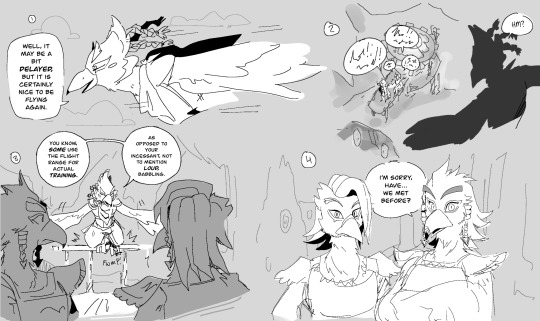


how to piss of the Bird™ (any % speedrun)
(this was my practice pass on how to draw Rito, so forgive the inconsistencies, loll)
#revali#botw#teba botw#harth botw#breath of the wild#legend of zelda#loz botw#rito#comics#champions resurrected au#anyone who has ever followed me for any au will know what’s about to happen#because i am but one woman with a love of a one specific trope#and it involves people lying about their identity#“i can’t say i’m revali until i prove harth wrong or all my credibility goes down the drain”#“so i train this teba guy until he ‘masters’ my gale and *then* do a big dramatic reveal”#“perfect plan. absolutely no problems.”#meta talks#comic#doodles#digital art#fanart#art
1K notes
·
View notes
Text
missy says “the doctor kills people too, i just enjoy it more. he’s the farmer, i’m the hunter, you know” and that makes me think she’s intimately aware of the sacrificial lamb paradigm. the lord is my shepherd. companions as beautiful little foals raised for the slaughter. with sorrow, of course, and remorse. the farmer loves every new creature in their flock with an emotional tenderness reserved for children and lovers. he’ll grieve when the butcher comes. he always does. but it’s inevitable. and you can always pretend your pet will live as long as you but fifty dog years are ten of your own. and when the time comes to put them down you’ll blame the vet. you’ll blame whoever has to bleed the calf. you’ll try not to blame yourself. after all, creatures in the wild alone lead such boring, listless lives. you’re showing them the wonders of the cosmos they’d never have seen with their normalcy-blinkered gaze. you’re doing them a favour. you’ll adopt another one. it will thank you as the light leaves its eyes.
but the hunter is evil, you say. the hunter kills willfully, the hunter stalks its prey, the hunter attacks with no mercy. instantly. painlessly, maybe. is that really so much worse?
after all, many moons ago, with a bloodied rock in his hands and the spectre of Death breathing down his neck, the hunter’s future had become the farmer’s first sacrifice. many moons ago, cain was the farmer and abel the hunter. and cain killed abel
#putting dark doctor who nonsense out into the universe before 73 yards. to get in the mood#‘it’s a children’s show stop making it deep it’s not that deep’ leave#missy#dw#doctor who meta#doctor who#twelve#twelfth doctor#peter capaldi#torvic#the master#thoschei#spydoc#tensimm#threegado#clara oswald#academy era#microfiction#cain and abel#doctor who companions#sacrificial lamb#kitty.txt
1K notes
·
View notes
Text
the warrior of light as a game-breaking force of violence
there's a moment, relatively early in dawntrail, that establishes succinctly how out of place the warrior of light (as the savior of eorzea and main character of four successive final fantasy game plots) is in what is essentially the story of fresh new final fantasy protagonist wuk lamat. and it sets up quite nicely how the framework of fantasy video game conflict pulls the warrior of light forever towards violence as the expansion goes on.
spoilers through 7.0 follow
consider wuk lamat's kidnapping and rescue. bakool ja ja holds his blade to wuk lamat's throat, taunting you. his lackeys line up against your party in neat little ranks suspiciously reminiscent of a classic final fantasy encounter screen.


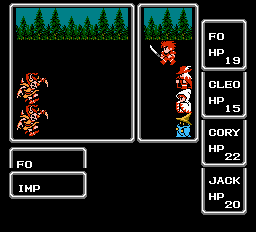
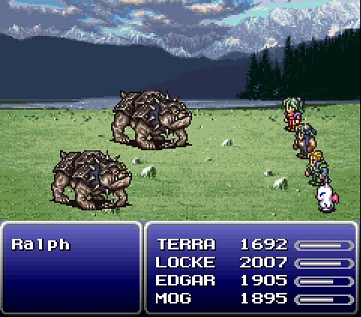

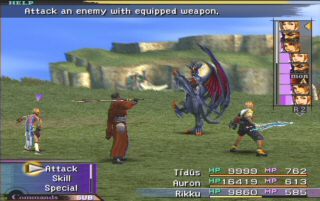
and it simply does not matter to the warrior of light. you stride right through their combat setup because you are beyond that by now. the warrior of light has absolutely no respect for the "we are about to do ATB combat" lineup. the camera even jumps the line for you in one continuous rotating shot, crossing the axis of action as though to emphasize through the disruption of visual convention how far outside the game's boundaries you are.



this is how far you are above the problems of dawntrail's first half. you cannot even be bound by the normal rules of cinematography and video game combat. everyone else here lined up for a good old-fashioned scrap and the warrior of light said haha nope actually. i'm going to stroll through here like a god of war astride this tiny battlefield. your henchmen cannot even raise a hand to me. i don't even have to engage in violence directly anymore. my mere presence is enough.
in fact, not only can bakool ja ja's henchmen not raise a hand to you, he's not even worthy of your direct intervention. he kidnaps wuk lamat and steals her keystones and frees valigarmanda and kidnaps hunmu rruk and none of it warrants the warrior of light so much as raising a finger. he's wuk lamat's recurring villain, that's not your problem. you're just here to take in the scenery.
zoraal ja spends his whole life aspiring to be thought of as his father's equal and a worthy successor to the dawnservant as the "resilient son." all it takes for gulool ja ja to acknowledge you as a warrior on his level is like a five minute sparring match. the acknowledgement from gulool ja ja that zoraal ja hungered for his whole life and would eventually go full cyborg supervillain to get via regicide is something the warrior of light receives casually in a throwaway line after their level 93 solo duty on the way to more important plot conversations.

it really seems for a second, in the first half of dawntrail, like you are strong enough and the problems simple enough for this to be a clean and easy adventure. bakool ja ja? power of friendship'd. mamook? successfully reintegrated, no worries about the crimes against humanity. rite of succession? handily won. nothing can stop you. even duty finder queue times have been conquered: you can do all your duties with trusts now.
all of which only makes it better when the second half has sphene ask you and wuk lamat directly: could your strength have been enough to save alexandria? could you have found a different way?

i know some people get very annoyed we don't intervene in the gulool ja ja fight. now personally i think if you see arthur and mordred squaring up it's rude to intervene, but beyond that, it simply wouldn't have mattered. by the time zoraal ja's forces arrived in tuliyollal, alexandria and tural were already on a collision course and doomed to conflict. your hands alone could never have averted this conflict. sphene was always bound to do what she did—and certainly a gulool ja ja without his reason would not be any more inclined to peace than wuk lamat and koana were.
there's a great little moment just before living memory where estinien, champion at reading the room, is like "okay so if thancred and i stay here that frees up you up, aibou, to do what you do best and save the world and have epic fights. woo!!!" and immediately afterwards you basically have to apologize to alisaie because part of the sort of unspoken premise of this whole trip in the first place was that you were, finally, not going to plunge into mortal peril to save the world. you were finally going to take it easy. you were finally done with that. and she has to sort of ruefully be like nah it's fine bro. i was trying to get you to take it easy and not do insane risky world-saving violence. but y'know these things (interdimensional invasions) happen.





by the time you reach the very last trial, all pretense that the warrior of light could have ever been beyond these problems has vanished. you were, very emphatically, not strong enough to hold onto all that was dear without sacrifice. gulool ja ja and otis and cahciua died. yyasulani was irreversibly changed, physically colonized and culturally decimated by another dimension. you systematically shut down each part of living memory, and all its friendly, charming, loving ghosts, with your own hands. with your own clicks.
not even the vaunted strength of the warrior of light is enough to overcome sphene's inexorable logic of conflict. and so, in the end, she plucks you out of the crowd and says, explicitly for reasons of your strength, that you are going to have to do a boss fight now. you are going to have to kill her and you are going to have to do it in a proper 8-on-1 trial, and she forces you to affirmatively state that you understand you're going to kill her.



did you think you were above it all? did you think you could get away from here with your weapon undrawn, with your hands clean? that for you and you alone the logic of conflict comes undone? wrong. wrong. wrong.
your strength cannot redeem you, says sphene. your friends cannot make these sacrifices for you. if you would play the hero then you must play the hero. no half-measures.

back to the duty finder with ye.
#ffxiv#dawntrail spoilers#dawntrail#sphene alexandros xiv#sphene#wuk lamat#estinien varlineau#warrior of light ffxiv#meta: durai report#developing a framework for understanding the wol where all the mandatory video game violence is sort of a noblesse oblige for being the pc#you want to just magically find whatever you need whenever you need it? you want to be literally a master of whatever craft you please?#you want to have the echo? you better work (be the weapon of light) bitch
552 notes
·
View notes
Text
Choosing the Beast: Modern Folklore Heroines Embrace the Animal Husband

“I choose the bear.” The refrain rang out across the web, with many a woman nodding in agreement or at least understanding, and certain men huffing with indignant outrage. Just a meme, really, but did it speak to a deeper truth? Is it merely age-old mistrust of patriarchy talking, or a true desire for the beastly, the wild, the untame?
I’m no sociologist, of course, but I have noticed an emerging trend in fem-gaze media that seems to reflect this view. In movies like I Am Dragon (2015) and recent shows like My Lady Jane and The Acolyte, the heroine chooses the beast, loving her animal husband in his wild form rather than requiring him to transform back into a mundane man to earn her affection. This is such a departure from the typical folktale pattern that it’s difficult to even find an historic example where this occurs.
Commonly thought to reveal the desire to tame a dangerous mate in a patriarchal society, most animal husband tales (ATU 425a) feature a hero who ultimately transforms permanently into a human. This is viewed not only as freeing him from the maddening effect of his wild form, but also saving his bride from committing the sin of bestiality. In these tales, the animal mate’s transformation is necessary for the salvation of both.
Is the modern heroine then damned by choosing her husband’s beastly form? Or does she actually free them both from the yoke of patriarchal expectations?
Bathing: Discovering the Wild Masculine
The first motif that stands out in these modern screen examples is bathing. In animal spouse tales, there is often a dynamic of the hunter and the hunted, and thus a moment when the hunter comes upon their would-be lover unawares. Perhaps they find the animal spouse sleeping, or they cast a light on them unexpectedly, see them without their animal skin or disguise, and so on. And of course, they often come upon the lover at their bath.
There is an implied eroticism in this discovery, finding one’s quarry not only undressed, but also in the most private of activities. Water of course symbolizes fertility, but bathing is also purifying, symbolically washing away all that might make a mate undesirable. And this, perhaps, is the reason that historically this motif is used almost exclusively for animal brides, not animal husbands.
For the animal husband, he either actively chooses to reveal himself to the bride (perhaps on their wedding night), or she violently strips away his disguise, often armed with “flame and steel” like Psyche and her many avatars. Animal brides on the other hand are nearly always discovered at a body of water, bathing. The hunter will then capture her either by stealing her animal skin or cloak, or by placing his own clothing on her. What does it mean, then, when it is the husband who is discovered bathing in a body of water, held as an erotic object in the feminine gaze?

In The Acolyte, Osha follows Qimir to a pool where he slowly undresses, in full knowledge that she is watching. On the shore, she steals his lightsaber, just like the hunter who steals the animal skin, symbolically claiming him. When he emerges, Qimir dons new clothes, as if acknowledging that he is a different person than before he entered the water, almost purified in a way. Osha is forced to confront that there is more to the murderer in the mask than she realized.
Similarly, in My Lady Jane, our heroine goes looking for Guildford just before sunrise on their ill-fated wedding night, only to discover him bathing in the stables. The scene is gratuitously filmed from Jane’s (very horny) perspective, flipping the script on the countless scenes in screen history shot with the masculine gaze. Immediately after she discovers and confronts him, Guildford transforms against his will into a horse, and Jane realizes that he is an Ethian, a creature she has been taught is demonic and unnatural.

And in I Am Dragon, Mira makes several discoveries in quick succession: first, she deduces that Arman is actually the dragon. In the next moment, she slips from the island’s peak and falls, saved only when Arman transforms at the last moment and breaks her fall with his dragon form. The water begins to wash over his unconscious body, and at first Mira thinks that she will allow him to drown. But the sight of Arman in his human form after he rescued her, worried over by his animal familiar, stirs her to pity and she wraps him in a sail and drags him to safety. In this way, she clothes him, claiming him as her own.
Each of these heroines discovered a new aspect of her husband at the bath, finding him unexpectedly alluring, and ultimately choosing to begrudgingly claim him. Each animal husband tried to wash away his beastly form, to separate himself from the wild masculine. These men feel a sense of disassociation from a part of themselves, but now that their brides have discovered it, there will be no more hiding. Further, the bride now holds the power in the relationship, evidenced by how her husband needs her: Qimir needs Osha to be his apprentice, Guildford needs Jane to help him “break the curse,” and Arman needs Mira to heal him from his wounds.
Playing House: The Half-Husband
The second feature of these stories is a period of domesticity for the couple. For a brief time after the husband’s beastly nature is revealed, the lovers “play house” like children. While sexual tension is present, they typically do not consummate their union during this time, but instead cook, eat, rest, and care for one another. What’s more, they ignore or even attempt to actively destroy the husband’s animal form. They deny that this is part of him and therefore part of their relationship.
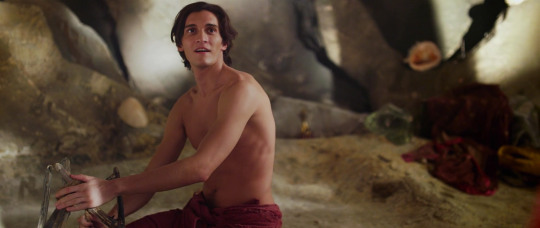
In I Am Dragon, Mira heals Arman, and wakes the next morning to find he has left food for her (dragonfruit, appropriately). Together they begin building a home out of shipwreck debris they find scattered around the island. A cheery montage shows them decorating a living space, choosing clothes, playing music, and dancing. But the specter of Arman’s monstrous form lurks on the edge of their idyllic life. Mira has nightmares, and tells Arman how much she fears “the dragon,” notably not referring to them as the same person. And eventually, it emerges that Mira has been planning to escape, rejecting Arman’s dragon form entirely.
After he sheds the helmet and robes of The Stranger, Qimir turns his attention to caring for Osha: he heals her, lets her sleep in his bed, provides clothes, and cooks for her. In turn, after some lightsaber-wielding, Osha becomes more comfortable in his home and accepts the food he offers, eventually even trying on his helmet. Later, they bicker amiably on their way to Brendok, like an old married couple on a road trip. When not facing down Jedi, Qimir leaves his menacing persona behind and transforms into an empathetic, protective, and alluring partner.

Jane Grey, meanwhile, finds herself using her honeymoon sequestered away in a private cottage to try to cure Guildford of his Ethianism. With her knowledge of medicine, she concocts various potions and magical cures, but none of them succeed. Guildford often checks in on her after these disappointments, making sure she’s getting enough sleep and taking care of herself. It’s also clear that they’ve been regularly dining together when Jane suddenly dashes off to rescue her friend. Guildford follows her and the two protect one another, followed by an almost-tryst. Even when they move into the palace, their day-to-day (or rather night-to-night) life is one of comfortable domesticity, although they continue to deny Guildford’s horse form.
In each of these cases (although less so in The Acolyte without Season 2 to continue the story), playing house can only last for so long while the husband’s animal nature is denied. There is a part of him that is suppressed, rejected, and this leads to him being incomplete, a half-husband. Each hero is unable or unwilling to accept and celebrate his whole self with his bride. Eventually, it is that denial that leads to a rift between the couple, which can only be healed not with the transformation of the husband, but with the embrace of his animal form.
Enforcing Patriarchy: The Rival
Each of these relationships exists in direct opposition to the dominant culture in the story: Arman as the Dragon is the literal enemy of Mira’s people, Qimir as Sith is the enemy of Osha’s Jedi masters, and in My Lady Jane, intermarriage between humans and Ethians is punishable by death. By choosing to stay with their animal husbands, even for a brief time, our heroines are openly defying the patriarchal norms of their societies. But no oppressive society is about to take that transgression lying down. In each story, a rival emerges to enforce the patriarchal order, kill the beastly husband, and retrieve the bride.
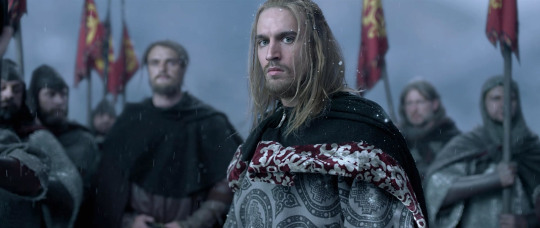
In I Am Dragon, Mira’s betrothed and descendent of the dragon-slayer, Igor, journeys to rescue her from the dragon. Over the course of the story, it becomes clear that Igor cares nothing for Mira herself, and merely feels entitled to her as his bride. Dragon-slaying is his heritage, so he must find her, kill the dragon, and take his place as the hero of his people. Even the marriage ceremony illustrates his ownership of her: he takes hold of a rope tied to her boat and reels her in, thus binding her to the patriarchal order. Contrast that to Arman, who offers her the power of flight, a symbol for freedom.
In Osha’s case, Qimir’s rival for her loyalty is clearly Master Sol, who wants to keep his former pupil dependent on him and the Jedi. Sol takes patronizing fatherliness to an extreme, constantly rescuing Osha rather than letting her stand for herself, teaching her to deny her feelings and instincts, and lying to her to “protect” her. The Jedi refuse to allow that there might be any other way to access the Force than their own, thus invading the home of the Brendok witches and ultimately orphaning the twins. Sol continues to press this dominance to the end, challenging Qimir and insisting to Osha that his own lies were justified.
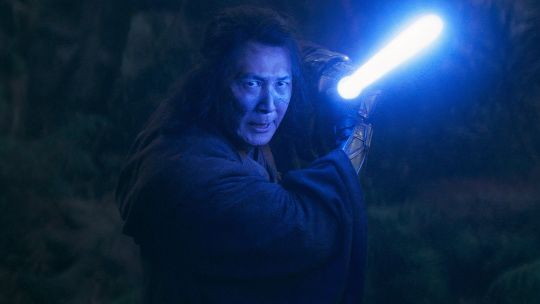
In My Lady Jane, there are two rivals, both women. Lady Frances attempts throughout the show to dominate her daughters and crush their wills, forcing them into unwanted marriages, applying political pressure, and even counseling Jane to abandon Guildford to save herself. The other rival is Mary Tudor, who is determined not only to emulate her father’s violent, oppressive, and misogynistic reign, but to crush anyone she considers “unnatural” or who poses a threat to her rule. These characters stand as clear examples of how women can enforce patriarchy, too.
In each story, there is a moment when the rival briefly recaptures or “rescues” the bride from her beastly husband, bringing her to a moment of decision: will she stay within the bounds of patriarchy like a good little girl? Or will she make an act of defiance to choose her own path?
Marriage: Choosing the Beast
The bride’s choice will ultimately decide not only her fate, but that of her mate as well. As an independent character, the wild masculine is deeply wounded, separated from himself and thus from his bride. He longs to transform not into a greater, more whole person, but into a lesser, half-person. Alone, without the embrace of his anima, he cannot see the value of his beastly form. Instead of healing, he faces annihilation.
As a part of the bride’s psyche, the beastly husband represents her innermost desires, the truth of her heart, and a spirit freed from the expectations of her society. He is her animus, her missing wild masculine. If she transforms him into a man, then she will tame his wild nature, bringing him to heel under the boot of the patriarchy. Choosing the human form and rejecting the beast means rejecting her own psychological needs. It would be just another form of psychic dismemberment.

Fortunately and unusually, each of these modern brides chooses her beastly husband without demanding he transform. When Osha finally agrees to become Qimir’s apprentice, she takes his hand under the willow tree, clasping the newly-bled lightsaber between them. A few scenes later, this wedding imagery is repeated when they hold hands over the saber again, this time looking into a sunrise/set. Notably, at the moment they “marry” under the willow tree, Qimir is wearing his beastly helmet with rows of menacing, wolfish teeth. He has not come to the light side or shed his Dark Side persona, but Osha has embraced him anyway without fear. And while they might not both be healed (yet), they are more whole together than they were apart.
When her efforts to cure Guildford of his Ethianism repeatedly fail, Jane begins to suspect that his “condition” cannot be cured at all. But listening to her Ethian friends Susanna and Archer finally convinces her that the truth is Guildford doesn’t NEED to be healed - being an Ethian is who he is, and it’s nothing to fear. Unfortunately, Guildford still associates his beastly form with his mother’s death, so he is unable to accept it as Jane encourages, and flees. After a near-death experience, he uses his equine speed to return to the castle just as Jane is deposed and captured. As our heroes battle toward the end, Guildford comes to learn that there are many other proud Ethians, and that his family loves and accepts him in any form.
Still, he’s unable to transform at will, and when Mary captures him and sentences both husband and wife to death, it seems their story may end in tragedy. But as Guildford has been struggling to accept himself, Jane too has been battling with her own conscience. Does she renounce Guildford to save herself? Use her wits to kill the guard and escape? Bend to her mother’s manipulation? Jane confronts each temptation, and ultimately chooses to face death rather than betray Guildford or herself. But when her Ethian friends (the wild instinct) appear to disrupt the execution, our heroine seizes the opportunity to rescue Guildford. Unable to free him from the burning pyre, she confesses her love for him, and they kiss amid the flames.

Fire is often a herald of transformation, burning away illusions to reveal the truth. And when Jane and Guildford exchange their vows in this symbolic marriage ceremony, Guildford’s fears and illusions are finally burned away. Now that his bride has accepted his beastly form, he can accept it too, and so he at last transforms at will into a horse so that they can escape. Their story ends with them married and whole before the sunrise.
Among our modern heroines, Mira is the boldest in her embrace of the beastly husband. Offered yet again as a bride to Igor, she realizes that this is not what she wants, and casts off the tether from her boat. She declares “I love the Dragon!” using the name of her husband’s animal form rather than his human name. Then, she sings the song that will call the dragon to her, and he appears to carry her away again.
But their story is not over yet! Earlier in the story, Arman told Mira of how he loses control when in dragon form, and that dragons are compelled to reproduce by burning maidens to death and retrieving their offspring from the ashes. Returning to the island with her a second time, the dragon drops her on the altar and prepares to spew fire, but Mira lunges up and kisses him. This act of love, even when he is a monster, stuns the beastly husband. Again, Mira declares her love and kneels before him, saying she does not wish to be parted. We might expect the animal husband to transform in this moment, but instead he lays his fearsome head in her lap as a lover. Their story ends with a child and a flight in the sky, silhouetted by the sun just like the other couples.

Each bride, when confronted with the option to return to the patriarchal limits of her childhood, chose instead an act of love and acceptance for her wild masculine. This embrace helped the beastly husband to accept his whole self, and he is healed without having to cut off the wild parts of himself.
What Does It Mean?
Again, this story is so rare in world folklore that it’s difficult to even find examples. On fleeting occasions that the woman chooses an untransformed beast, it is presented as a cautionary tale. These women are framed as a danger to the community for their bestial impulses and abandonment of the social order, much like witches who were said to consort with the devil. It was certainly never presented as a happy ending, insofar as we can tell from written accounts.
So what does the emergence of this tale mean for our culture? I would argue that this is just the latest step in our ongoing reckoning with historic gender roles, as well as renegotiating with other forms of systemic oppression. People of all genders are pressured to reject a part of ourselves, cutting us off from our own truth and desires that run counter to the enforced social order. We must not challenge patriarchy, must not embrace different gender expressions, must not blur established hierarchies of power, must not find joy and power in our identities, and so on.
This enforced denial does tremendous damage to everyone caught in the system, and so through story, we dream our way to escape. We dream of embracing the dark, wild parts of ourselves, of flying free on a spaceship or a dragon or enchanted horseback, and of being totally loved for who we are.
It’s clear patriarchy is still fighting back against this emancipation of the wild feminine and wild masculine, given that both The Acolyte and My Lady Jane were canceled not long after their release. In the case of The Acolyte in particular, there was a sustained campaign from its announcement to harass and silence the creators. Demoralizing as this phenomenon may be, it’s important to remember WHO ultimately owns these stories:
“Fanfiction is a way of the culture repairing the damage done in a system where contemporary myths are owned by corporations instead of owned by the folk.
-Henry Jenkins, NYT 1997
Ah, an oldie-but-goodie. But Dr. Jenkins is right. Corporations may greenlight, film, release, and then cancel these stories, but ultimately they belong to the people. We take from these tales what speaks to us, leave what does not, and then retell them ourselves in fanfiction, in art inspired by the stories, and in lessons we pass on to our friends and families. If the embrace of the wild masculine speaks to you, let the story take root in your own life. Do you know someone who needs to be embraced, just as they are? Do you need to accept the parts of yourself that society tells you to hate? Do you want to be free, healed, and whole?
If so, then let these stories show you how, and tell more like them. Embrace the beast, and find your joy.
Sources:
Beauty and the Beast Tales From Around the World by Heidi Anne Heiner
In Search of the Swan Maiden: A Narrative on Folklore and Gender by Barbara Fass Leavy
And a relevant song for you, as a treat:
Women Who Run With the Wolves: Myths and Stories of the Wild Woman Archetype by Clarissa Pinkola Estés, Ph.D.
youtube
#monster husband#animal husband#atu 425a#the acolyte#oshamir#the acolyte meta#star wars#star wars meta#oshamir meta#osha x qimir#osha aniseya#qimir#master sol#my lady jane#lady jane grey#jane grey#guildford dudley#jane x guildford#janeford#on drakon#i am dragon#he's a dragon#i am dragon 2015#mira x arman#beauty and the beast#folk tales#fairy tales#anti patriarchy#save the acolyte#save my lady jane
659 notes
·
View notes
Text
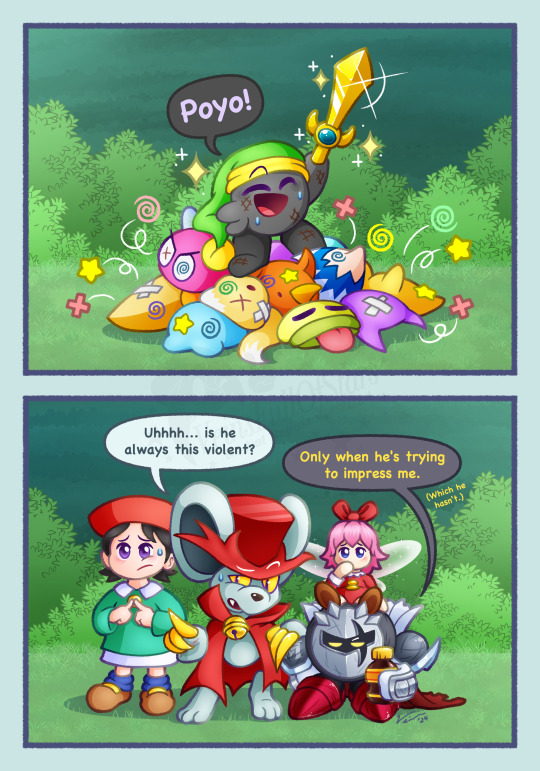
“Are… they gonna be okay?” “Probably.”
(ID: Kirby series fanart comic of Shadow Kirby showing off his fighting skills to the Wave 2 gang, prompting rather… mixed reactions. Transcript in Alt Text. END ID.)
Started 11/23/24, finished 12/14/24.
#veins art#veins fanart#kirby series#kirby#shadow kirby#master kirby#adeleine#daroach#ribbon kirby#dark meta knight#wave 2#various kirby enemies#comic#description in Alt Text#bit of an overachiever when he puts his mind to it#even if he’s still holding back (at least in Dark’s opinion)#Daroach would’ve been impressed at the kid’s skills either way - he’s just not the biggest fan of needless violence#nor are the girls#Addie having very little stomach for conflict#and Ribbon only just growing used to the idea of the world being anything but bright and cheerful#(but that’s starting to veer into AU thoughts and this is meant to be gen canon so…)#also Dark brought the Energy Drink for himself - not SK#veinsfullofstars
404 notes
·
View notes
Text
Let's appreciate how complex Agatha's relationship with Billy is
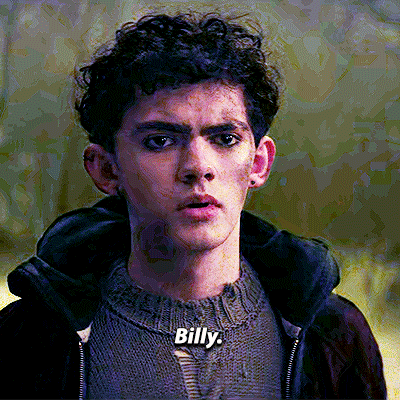
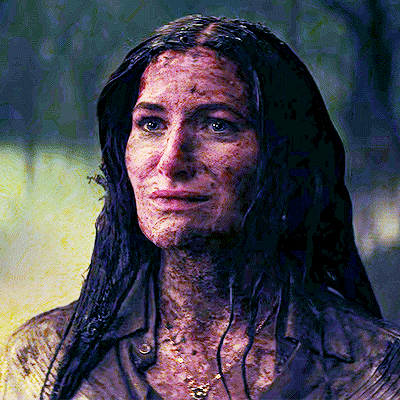
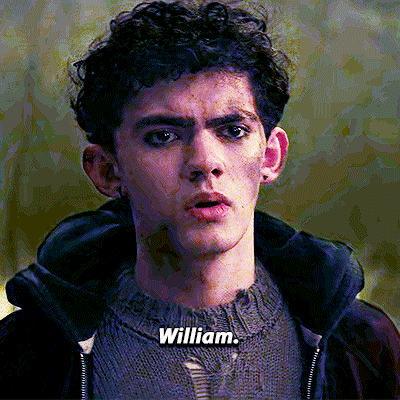
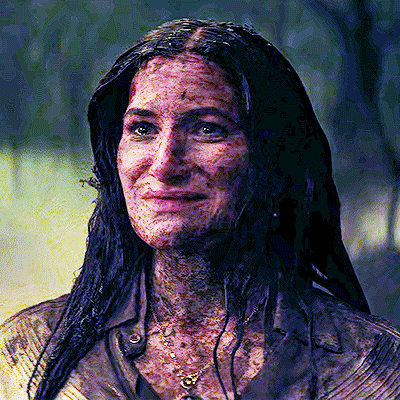
GIF credit to @isagrimorie
The genuine emotion brimming from Agatha in this moment is very interesting and I really want to break down all the layers of how Agatha is relating to Billy—because it is truly not as simple as Agatha feeling sentimental or motherly to Billy.
There are a few layers at work here (and I also want to give a shout-out to @trickofthelights for her excellent recap points):
Billy reminds Agatha (enough) of herself
There are two driving forces at the core of Agatha as a character. We know this because her characterisation has been incredibly consistent throughout the show and Schaeffer has talked about them, which is: (a) Agatha is self-serving and (b) Agatha loves powerful witchcraft.
Billy is a powerful witch who did a horrifying thing in order to survive. He's been lying to these wonderful parents. He also just tried murdering three people in a fit of rage, provoked by Agatha no less.
Would Agatha care if he was less powerful? Would Agatha care if he didn't have a dark side? If he hadn't shown to be duplicitous and dangerous and subject to his darker impulses?
If he wasn't alone and without a coven, a possible outcast even among witches because of his unusual origins and power?
I'm pretty sure the answer is no, she would not. She would have dismissed him the same way she did his "Teen" persona. Agatha doesn't care about witches, Agatha cares about powerful witches –because that's who Agatha is and what drives her.
And we also got hints of this with Agatha and Wanda (hello consistent characterisation). In Schaeffer's words:
There is respect and almost affection inherent in [Agatha's interest in enormously powerful witchcraft], as indicated by how she felt about Wanda. She was mean to Wanda, but really she was fascinated by Wanda and admired her and wanted to hang out with her.
And if this wasn't clear enough, what Agatha tells Billy shortly later about breaking the rules and being a true witch just screams projection (more on that in my next point).
I was delighted that Agatha really did bounce back from the attempted murder – but it's not because she's forgiving. Oh no, I think, Agatha was testing her theory by poking the bear (calculated move, bad at math) and she's glad she was proven right.
I mean, she not happy about the attempted murder but her curiosity wins out. You see her poking at Billy and trying to figure him out in the rest of this scene.
Agatha also hates self-righteous moralising and searches out for the darkness in people – delights in it even – because she knows people and she knows her own darkness.
Billy is different but also not so different from Agatha, as much as Billy or his mom would hate to admit.
Agatha is dealing with her childhood trauma
Yes, Agatha is projecting on Billy, but she makes a choice about it. We hear her telling him what she would have wanted someone to tell her: that they shouldn't be afraid or ashamed of who they are or what they did to survive, that they are part of a community.
Don't you dare feel guilty about your talent. ... That's what kept you alive. That's what makes you special. That's what makes you a witch.
She's trying to be the person she needed when she was a child, because she simply doesn't want someone else – particularly a younger witch – going through what she did.
She doesn't want anyone to go through what her mother put her through. And that's a choice.
Because there are a number of ways a character can deal with trauma: they can lash out and bring others down, wanting others to experience to the pain they went through, or they can realise that what happened to them shouldn't happen to anyone else in their position.
There's something beautifully self-serving but also selfless in that, because this is a way for Agatha to heal from her trauma. She can tell Billy things she may not be able to tell herself.
And it's interesting because as a self-serving villain, Agatha could just be jealous of Billy's power. But in this moment at least, Agatha's empathy and compassion – as buried as they usually are – prevail.
And yes, Agatha was fond of kid Billy
This is what Schaeffer touched on in her interview answer and it makes sense, with the insight that Agatha – like any good actor – does invest a bit of herself in every role she plays.
Agatha does have feelings (as much as they might make her vomit) and I do believe she has a soft spot when it comes to kids, given her experience with her son and her own childhood trauma. And that kids don't have the level of hypocrisy and darkness that adults do.
It makes sense that Agatha would have some level of care about the Scarlet Witch's magical kid Billy. And that is a fondness that has carried onto teenage Billy – who is powerful and a survivor and has a potential for darkness in a way she can relate to.
There are layers and they intersect and it all ties back to how Agatha is incredibly complex and yet consistent as a character.
#agatha all along#agatha harkness#billy maximoff#aaa meta#tv: agatha all along#as a general rule if you think one thing about agatha harkness#you're probably wrong#she's almost always more than just one thing#she is mean because she wants to protect herself#but she also genuinely enjoys it#she can regret killing#but also not give a fuck about it#she can be a master tactican and chess player#but also a dumbass driven by ego and hubris#(and she can be a top and a bottom)
419 notes
·
View notes
Text
In this house we stan Jedi Master Indara. She was absolutely on point in this episode, she was compassionate and gentle with the girls, she was so warm and friendly with Mae when she needed it, she was firm in how they couldn't overstep if the girls' mother didn't want them to leave, how they couldn't just barge into the witches' lives, she warned everyone to be cautious and that they were overstepping their bounds, she warned Sol to not confuse his own wants with Osha's wants, her ultimate priority was Osha's wellbeing in the end, that she was willing to not tell the full truth, even if it wouldn't have gotten them in that much trouble with the Council, it would have possibly crushed Osha's dream, so she made that hard choice, she came in like a goddamned wrecking ball when Kelnacca was under the witches' influence, there must have been at least twenty of them in his head, and JEDI MASTER INDARA TOLD THEM TO GET THE FUCK OUT and she blasted them the hell out of Kelnacca's mind BY HERSELF, she was right that they needed to be more careful, because she understood how things could go bad, she was teasing Sol and laughing with him about not having a Padawan yet, clearly it was a joke and used to lighten his mood, like Master Indara the Jedi that you are, we stan.
2K notes
·
View notes
Text
Everyone wants to see Billie Piper or Jenna Coleman return as a future incarnation of the Doctor and I get it but hear me out…
What if they return as the master instead? 👀
Is wearing the face of a lost friend that the doctor had pseudo-romantic tension with to guilt/torment/ manipulate the doctor not exactly something the master would do? That’s kind of just their whole deal already really, this would just be that little EXTRA bit fucked up.
#and we all know the master is ALWAYS a little extra ;3#am i right?#doctor who#dr who#dw#doctor who fandom#doctor who meta#the master#thoschei#rose tyler#clara oswald#billie piper#jenna coleman
375 notes
·
View notes
Text
Avatar the last air bender fans when they have to watch a well written story of a 14yo girl has genuine and understandable grief for her mother who was unexpectedly and terribly killed when she was a child, and struggles with trauma after seeing her mothers dead body lying in the middle of their home and taking her mothers necklace right off that dead body to wear it and take on all the motherly duties around the house for her father and brother as A CHILD.

(Stop the Katara hate/jokes about how much she mentions her mother. It genuinely makes no sense, and you look like an unsympathetic asshole.)
234 notes
·
View notes
Text
missy doesn’t understand that she’s in the wrong genre. she believes she’s in a darkly alluring gothic romance instead of an optimistic sci-fi show. in her genre, gifting your estranged ex/enemy/lover/best friend/twin flame an indestructible undead army to prove to him that your will to power is identical is the most romantic gesture imaginable. it’s victory via surrender, it’s control through abdication. all her scheming to “corrupt” him, to demonstrate that they’re the same deep down, that his sanctimonious morality is nothing but a method of keeping his own conscience clean, that’s the hannibal gene, the lestat gene (*obviously the dynamics aren’t 1-to-1 similar, but… close enough) and missy’s tragedy in death in heaven is in that, within the narrative format she’s trapped in, she can never succeed
#dw#jamie catches up#death in heaven#missy#twissy#the narrative#thoschei#twelfth doctor#twelve#doctor who meta#dark water#doctor who series 8#the master
3K notes
·
View notes
Text
I wish people were willing to have a slightly broader or more expansive understanding of FFXIV's women because I think there's so much there in terms of easily-unearthed subtext that no one really thinks about! And I don't mean this in a "people need to re-evaluate their response to the women of Stormblood" way (though I do think that's largely true), I mean I think fandom's understanding even of the women it mostly likes is pretty weak. And you can say that's because the women are underwritten, and I won't argue that they couldn't use more attention from the writing, but that doesn't prevent you from analyzing them the way you can any character in fiction.
Like everyone's always like, oh, Y'shtola and Krile are like your snarky wine aunts, haha. But...Sharlayan is a pretty ossified and patriarchal society from what we see of it in Endwalker and places like the AST quests. Can we open ourselves to the possibility that it means something that almost every young Sharlayan woman we meet, almost all young women in academia, tends to be a little sharp and quick on the retort? The arch and snarky ways in which those two carry themselves reflect in some sense the facts that Krile is almost literally a nepo baby woman in STEM who is barely older than her students, while Y'shtola learned her behaviors from her much older female mentor, a woman who hated Sharlayan academic culture so much she literally abandoned it to go live in a cave.
Or like, Alisaie! Fan jokes and meta frequently buy into her tendency to characterize the dynamic between her and Alphinaud as a jock/nerd, street savvy extrovert vs book smart introvert thing. Except, tragically, Alphinaud's highest stat is 100% Charisma and he absolutely pulled in his student days. All his greatest achievements are diplomatic, and he very easily develops strong friendships with people in every culture you learn about. Alisaie is the determined, sensitive genius who revolutionizes Eorzea by proving the tempered can be healed. She's just permanently carrying a chip on her shoulder that while she and her brother are remembered as the youngest students in Studium history, actually he got in six months before her, a fact pretty much no one else ever brings up once. She's constantly fuming over the fact that he was marginally better than her in certain specific ways in high school, and looking to differentiate them in ways that actually fail to credit her own obvious strengths and accomplishments. I think that's so fun! It's so juicy, and it's equally good for comedy or serious character studies.
Venat is a genuinely benevolent hero who has no compunction sacrificing lives for the greater good. Minfilia is kind and compassionate and clearly on some level actually buys into the narrative of her own unique moral authority. Ysayle is a revolutionary firebrand with almost no concern for the common man, whose death reflects her Javert-like inability to reconcile her own romantic belief in justice with the tragic ways her blinkered worldview (born largely of trauma) let her be easily co-opted by a violent system. But even people who like these characters rarely move past surface-level reads (people who think Venat is just an all-loving mommy figure make me want to fucking die). The fandom is allergic to drawing connections the game doesn't draw, and fails to recognize that FFXIV is a game where characters voice understandings of themselves and others that are wrong about as often as they're right.
You can already see the ways that women like Wuk Lamat and Cahciua and Sphene are getting flattened or losing their shading in fan reception and it's boring. Like I'm not even saying this because you should take female characters more seriously or something (though you should), I'm literally just bored to tears sometimes and if you guys turn Wuk Lamat into another Hot Dumb Jock Lady, I will combust.
#ffxiv#y'shtola rhul#alisaie leveilleur#krile baldesion#master matoya#endwalker spoilers#dawntrail spoilers#not really dawntrail spoilers but i try to over tag#shadowbringers spoilers#meta: durai report
699 notes
·
View notes
Text
chapter cards for thirteen: november - april
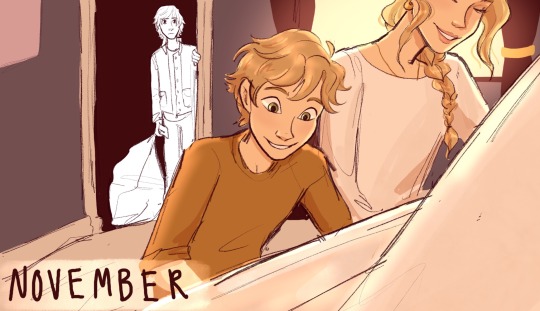
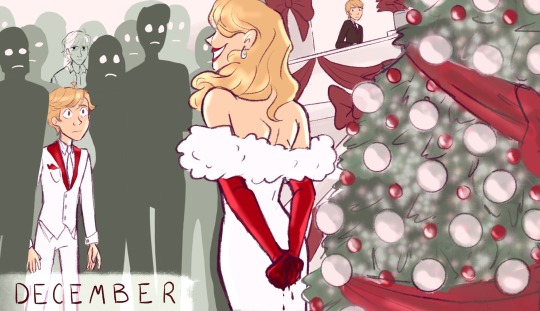
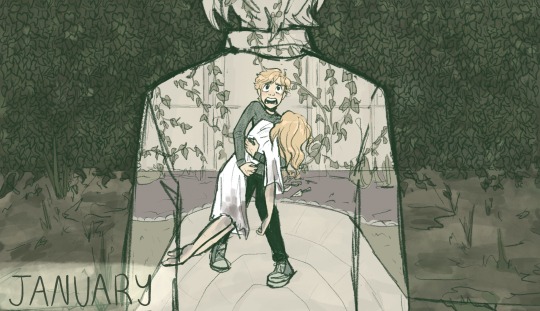
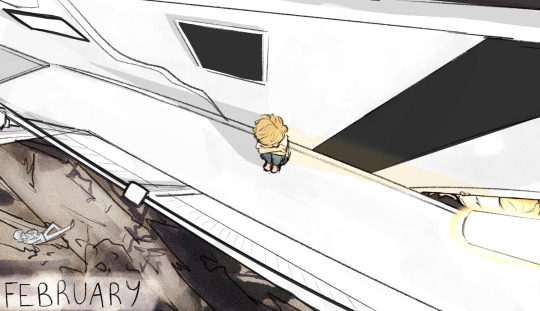
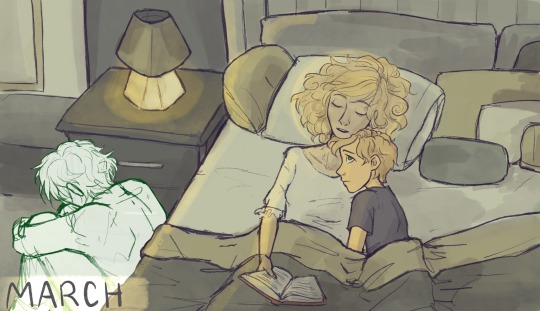
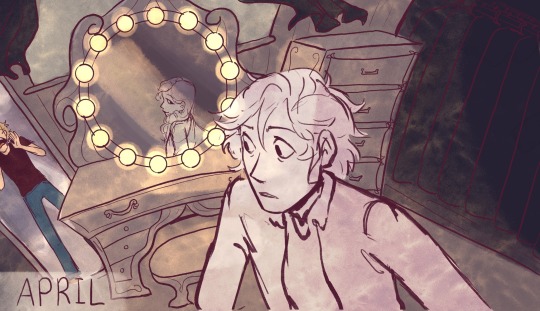
read on ao3
#I did want to post this bc it's been in my drafts for a while and I do like these#it's fun seeing them all together like this#like my metamorphosis covers master post that was so fun#it does feel a little bit like. I dont know.#meta or ironic or something#that I had to stick a hiatus right down the middle of the chapters#and right at the moment where [redacted] happened#it feels a little bit poetic for there to be a chasm there#watch me like get really inspired next week and write all of may and then none of this means anything lol#who knows#but anyway I like these#april in particular feels so fun and spooky#I love emilie agreste she scares me#autumn asukiess I know you now what im talking about#ml#miraculous ladybug#miraculous#my art#adrien agreste#emilie agreste#ml fic#thirteen
930 notes
·
View notes
Text

The early relationship between Ciel and Sebastian is actually so damned adorable to me. To say that Sebastian, being a demon, is unequipped to take care of a young traumatized child who’s just lost his entire family would be a severe understatement. And yet here he was, the demon trapped by the contract, forced to protect and attend to his little master while also having to learn how to cook and provide for a human being without simply magicking his way through everything. It results in this comical sight of a grown man completely inept at basic housework, bickering with a ten year old orphan over how to prepare bath water or how to brew tea. An invincible nearly-all-powerful demon has been completely blown out of his elements.

Much to his credit, Ciel wasn’t intimidated at all either by the demon who could snap his neck like a twig. He wasn’t scared—he had no time to waste by being scared, anxious, or even to grieve over his lost family. He had one goal in mind and Sebastian was his weapon to get there—he needs to hone not only himself but also Sebastian. It was both tragic and admirable—that such a young child could be this ruthless towards himself; showing an unwavering, cold-blooded determination on revenge. He was clearly much smarter than his peers—this ten year old somehow hoodwinked a hundreds-of-years year old demon into practically babysitting him; bathing and tucking him to bed, teaching him how to do his homework and how to ride a horse, etc.

It was only at night when he laid down alone in his bed, that the nightmares would haunt him. Ciel asking Sebastian to stay nearby so he could sleep was the only display of vulnerability he allowed himself to have. And Sebastian, with all his sarcastic attitudes and occasional impudence—despite looking down on human beings so much—said nothing about it.
Sebastian could have been a more fickle, crueler demon and Ciel could have been a more forlorn, powerless child—but somehow Sebastian was not, and somehow Ciel could hold up on his own against him. Sebastian isn’t just a mindless beast, and Ciel isn’t just a traumatized child. That’s why their negotiation for the contract was symbolized with chess—where even if one must make the first move, both sides are equal. This is such an important point in their relationship dynamic and Yana Toboso made a point to declare that they have been equals since the very start—Ciel was punishing Sebastian as much as Sebastian did him. And I think the way they formed such a bond with each other is only possible because Sebastian and Ciel are the way that they are; just two similarly stubborn kindred spirits—one insisting on his aesthetics and the other persisting on his revenge.

Watching how their relationship started out was very interesting because both were clearly struggling out of their depths to adapt to each other—and yet they did so out of an unspoken mutual understanding and respect. The first time we met Sebastian he was still so raw, demonic and unrefined, and our first impression of younger Ciel might have been a more timid, shy and soft-spoken child—they had grown so much within the span of three years; and I’ll say that they both raised each other in different ways—Sebastian educating Ciel on how to be the Earl (even if he wasn’t the real thing) and Ciel teaching Sebastian on how to be the attentive butler (even if it’s only on the surface).
#kuroshitsuji#black butler#ciel phantomhive#sebastian michaelis#kuroshitsuji meta#sebaciel#my loveliest cutest demon master pair
207 notes
·
View notes